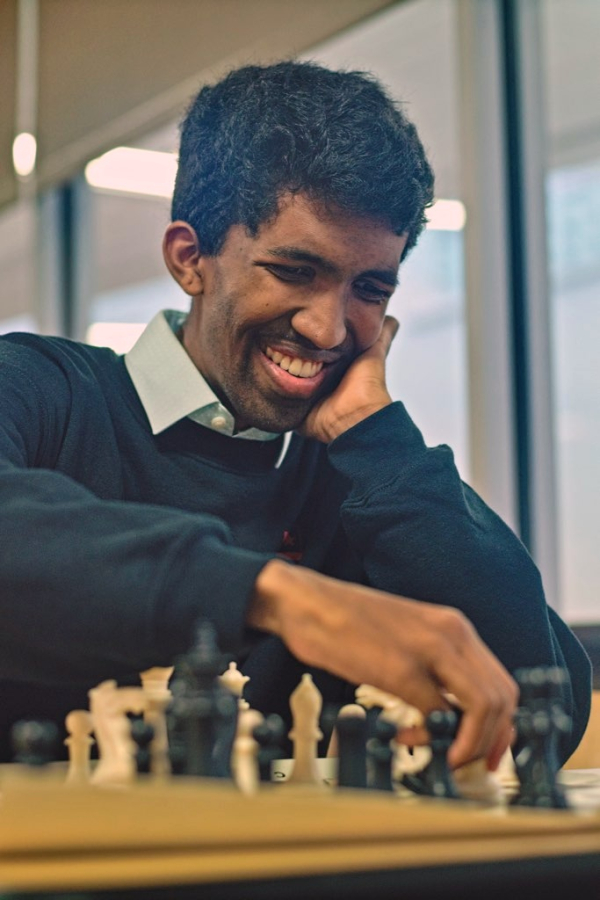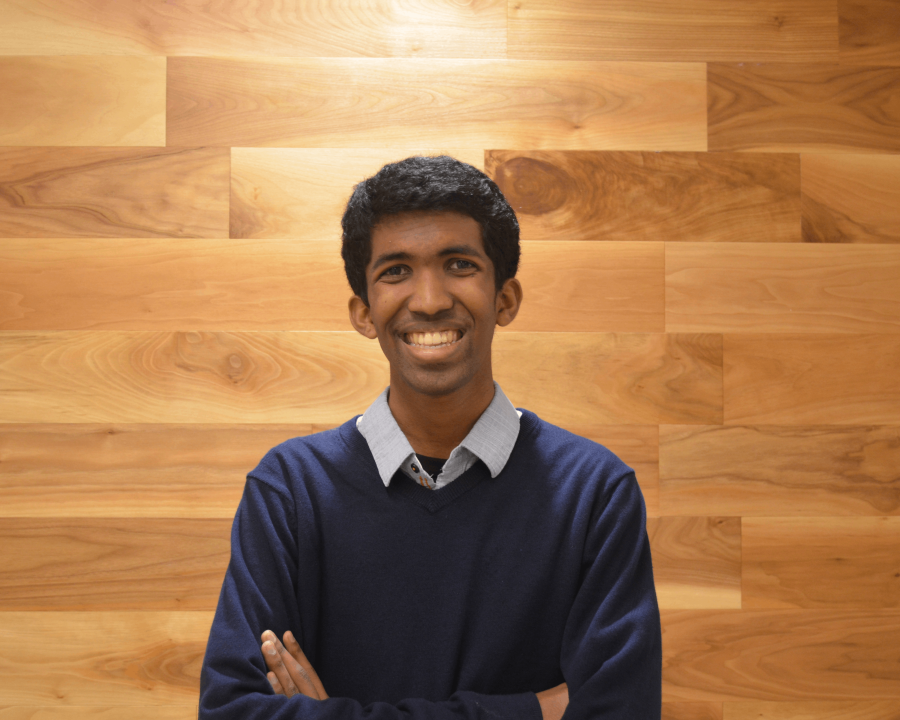Nathan Varghese, graduating this semester with a bachelor’s degree in chemical engineering, has packed as much as he could into four years at the University of Houston: learning a new city as a California transplant, serving as a demonstration coordinator with the American Chemical Society, starting UH’s Chess Club, gaining research experience in the lab of Abraham E. Dukler Professor Jeffrey Rimer, and securing a Texas Instruments internship and full-time offer starting this fall.
Coming from Los Angeles, Varghese “didn’t know anything about Houston” except that it was the place to be.
“What better place for a chemical engineer to go than the energy capital? Coming to Houston has really paid off, because I’ve had so many opportunities here; not just career-wise, but in getting to know other people and different industries that I wouldn’t have had a chance to know anywhere else. The location is what matters,” he said.
“With a degree in chemical engineering in New England, you’ve got pharmaceuticals; in the West, you’ve got aerospace and defense; but I wanted to be in manufacturing in materials science and energy, so I felt that Houston was the perfect place.”
The one downside: UH did not have a chess club.
“I really like chess, but when I came to Houston, I didn’t know anybody here, so I just started playing chess randomly and we ultimately started a chess club. I co-founded it with a couple of friends my freshman year. It’s grown into a huge organization, and I’m really proud of where it is right now. It’s very fulfilling for me,” said Varghese. “Join chess club!” he laughed.
When he wasn’t playing chess, Varghese had his hands occupied with — you guessed it — more chemistry.
“I did research under Dr. Rimer’s lab, and that was really fun, especially as a freshman and sophomore when I was just getting into really understanding what chemical engineering was. I had a really amazing mentor, and I got to experience hands-on research as soon as I got here. They really taught me a lot. I even got a paper out of it, and I’m really proud of that, too,” he said.
“I see a lot of people who are hesitant to get into research [as undergraduates] at UH, especially when I see how my friends at other universities have to be so competitive about research. Here, it’s pretty open to undergrads and anyone who’s interested, but not many people take advantage of that because they feel like they have to know more first.
“As a freshman, I didn’t know anything when I began, but it was a really rewarding experience to jump into as soon as I could. For people who are interested in their field or just want to know more about how it’s applied in industry, even if you’re not particularly focused on going into academia, jumping into research as early as you can is such an amazing way to get started and get your head thinking about the future.”
Speaking of the future, Varghese also recently joined the American Chemical Society wherein he serves as a demonstration coordinator for local K-12 students.
“We work on making science experiences for kids. We recently did two experiments at Dulles High School and Sablatura Middle School, and showing those demos was really, really fun. It’s great to be able to spread the joy and see little kids so excited about science — it’s nice to see them have the same kind of enthusiasm that I did.”
In fact, he might just be inspiring the next Nathan Varghese.
“Ever since I was in the second grade, I’ve really loved chemistry — figuring out how the world works at a very small level. In the second grade, I taught myself basic chemistry and I’ve been in love with it ever since. I knew in middle school that I wanted to work in materials science — to be able to create new materials and the very things we use every day.”
As the only engineer in his family, Varghese was uncertain about what his path would look like in education and beyond. As a high school student during the COVID-19 lockdowns, he found himself with plenty of free time — enough to seek out chemical engineers with interesting profiles on LinkedIn and ask to interview them about their experiences.
“I spoke to maybe 100–150 of them. They were engineers who I felt were in the place where I wanted to be after graduation, so I asked them how they got there, what steps they took and what they felt what most important, what they did and didn’t like…”
It paid off. After graduation, Varghese will be employed at Texas Instruments in Dallas, working on semiconductors as a surface prep process engineer.
“It’s basically my dream job,” he said.

